SESSION #3
Tracking and Mitigating a 21st Century Pandemic
Thursday, October 28, 2021 | 10:30 am – 1:55 pm PT
QUICKLINKS:
Program Recordings
Opening Remarks:
Session Introduction
Panel: Strengthening Systems for Pandemic Monitoring, Disease Prevention, and Early Intervention
Panel: Manufacturing, Supply Chain, and Long-Term Stockpile Strategies
Panel: Combating the Infodemic
Panel: The Public Health Problem
CLOSING REMARKS
FROM THE DEANS
Overview
Virtual Event Program
Date | Thursday, October 28, 2021
Time | 10:30 am – 1:55 pm PT
Opening Remarks: Session Introduction
10:30 – 10:35 am
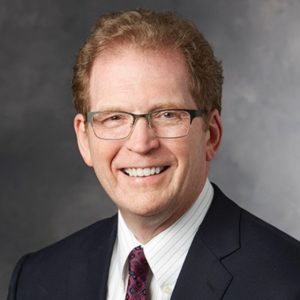
Lloyd Minor, MD
Dean, Stanford School of Medicine
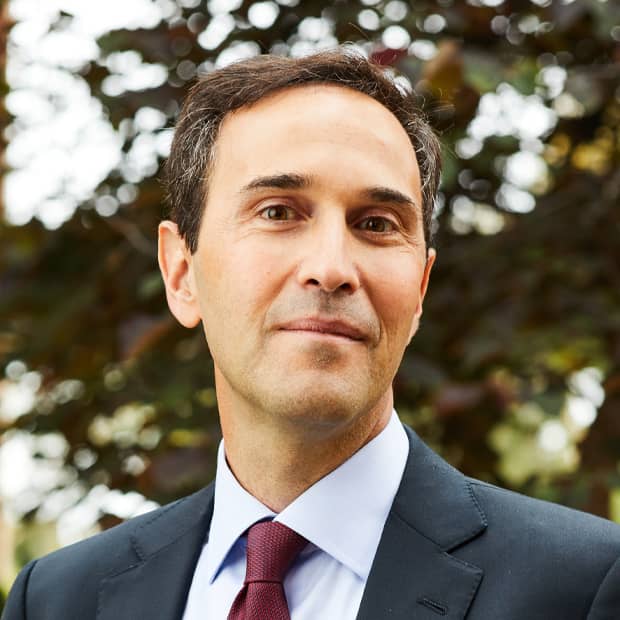
Jonathan Levin, PhD
Dean, Stanford Graduate School of Business
Jonathan Levin is the Philip H. Knight Professor and Dean of Stanford Graduate School of Business. He was appointed as the 10th dean of the school in September 2016. Levin joined the Stanford faculty as an assistant professor in 2000. He was later appointed the Holbrook Working Professor of Price Theory in the Department of Economics, and Department Chair from 2011 to 2014. He has taught market design, game theory, microeconomics, and industrial organization at the undergraduate and graduate levels. He was also professor, by courtesy, at the Stanford Graduate School of Business, a senior fellow at the Stanford Institute for Economic Policy Research, and director of the Industrial Organization Program at the National Bureau for Economic Research.
PANEL: STRENGTHENING SYSTEMS FOR PANDEMIC MONITORING, DISEASE PREVENTION, AND EARLY INTERVENTION
10:35 – 11:20 AM
Early intervention is the key to stopping an outbreak in its tracks. But to do so requires a robust early warning system. Throughout the pandemic, tools such as data modeling, testing, contact tracing, and various public health interventions have been deployed to predict and prevent COVID-19 outbreaks. Have they worked? If we could imagine a future system to fight pandemics, what would that look like?
Moderator
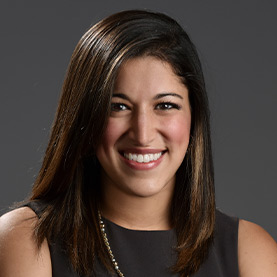
Yasmeen Abutaleb
Health Policy Reporter
The Washington Post
Yasmeen Abutaleb joined The Washington Post in 2019 as a national reporter covering health policy. She has extensively covered the coronavirus pandemic from its earliest days in January 2020 and continues to cover it today, including the federal government’s response. Yasmeen co-authored a book about the pandemic with her colleague Damian Paletta called “Nightmare Scenario: Inside the Trump Administration’s Response to the Pandemic that Changed History,” which was a New York Times no. 1 bestseller. She previously covered health care for Reuters. In 2016, Yasmeen was a lead reporter on a five-part series that examined the rising threat of antibiotic-resistant infections and the challenges of the government and health care industry in addressing the problem. Yasmeen has also reported in depth on drug pricing, the Affordable Care Act and the intersection of health policy and politics.
Panelists

Robert Redfield, MD
Former Director
Centers for Disease Control and Prevention
Robert R. Redfield is the Former Director of the Centers for Disease Control and Prevention. He has been a public health leader in clinical research and clinical care of chronic human viral infections and infectious diseases for more than 30 years, having made several important contributions to the scientific understanding of HIV. During his 20 years in the U.S. Army Medical Corps, he served as the founding director of the Department of Retroviral Research within the U.S. Military’s HIV Research Program. Following his military service, he co-founded the University of Maryland’s Institute of Human Virology. He is a past member of the Office of AIDS Research Advisory Council at the National Institutes of Health, the Fogarty International Center Advisory Board at the National Institutes of Health, and the Advisory Anti-Infective Agent Committee of the Food and Drug Administration. In addition to this, he served as a member of the President’s Advisory Council on HIV/AIDS from 2005 to 2009 and was appointed as Chair of the International Subcommittee from 2006 to 2009.
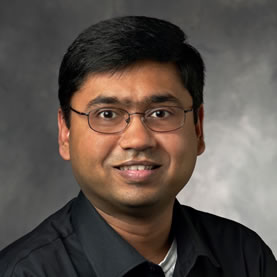
Nigam Shah, PhD
Professor of Biomedical Informatics
Stanford Medicine
Dr. Nigam Shah is a Professor of Medicine in Biomedical Informatics and Biomedical Data Science at Stanford University, and serves as the Associate Chief Information Officer for Data Science for Stanford Health Care. His research focuses on bringing machine learning to clinical use safely, ethically and cost-effectively. He was elected into the American College of Medical Informatics (ACMI) in 2015 and is inducted into the American Society for Clinical Investigation (ASCI) in 2016. He holds an MBBS from Baroda Medical College, India, a PhD from Penn State University and completed postdoctoral training at Stanford University
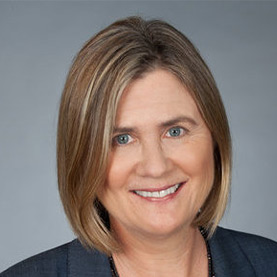
Sara Cody, MD
Health Officer and Director
Santa Clara County Public Health Department
Dr. Sara Cody joined the County of Santa Clara Public Health Department 20 years ago and currently serves as both Health Officer and Director of the Public Health Department. In her dual roles, she oversees 450 staff who lead more than 30 programs dedicated to providing services that prevent disease and promote health and equity for nearly two million county residents. She leads the department in providing services, assessing and reporting on community health, and working on policy and strategic planning. She also serves as a board member for several organizations and is the immediate past Chair of the Big Cities Health Coalition, which represents health leaders from the 30 largest cities in the country, who collectively serve 1 in 5 Americans. Prior to joining the county, she completed a postdoctoral fellowship as an Epidemic Intelligence Service Officer with the Centers for Disease Control and Prevention. She graduated from Yale School of Medicine, followed by a residency in internal medicine at Stanford Hospital. Born and raised in the County, she received her bachelor’s degree from Stanford University.
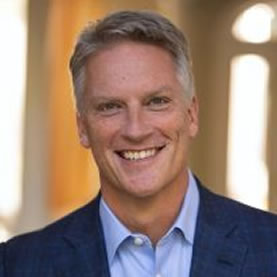
Kevin Ban, MD
Chief Medical Officer
Walgreens
Kevin Ban, MD, was named the Chief Medical Officer (CMO) of Walgreens in January 2020. Formerly the Chief Medical Officer at athenahealth and Beth Israel Deaconess Needham, Kevin brings over 20 years of clinical experience and expertise in developing innovative medical systems to his current role. He has played a critical role in Walgreens’ pandemic response, implementing guidelines to ensure patient and team member safety and reduce spread of illness, providing real-time clinical guidance, launching and expanding COVID-19 testing services across thousands of stores, and most recently, rolling out COVID-19 vaccinations. Previously he joined the Harvard Medical Faculty Physicians emergency medicine group as director of the Tuscan Emergency Medicine Initiative (TEMI). During his eight years at TEMI, he learned how to drive improvement outcomes while decreasing the overall cost of care. He also advanced from a clinical instructor to an assistant professor at Harvard Medical School where he taught for a total of 13 years. He received his MD from Georgetown School of Medicine and completed his general surgery residency at Thomas Jefferson University Hospital in Philadelphia.
PANEL: MANUFACTURING, SUPPLY CHAIN, AND LONG-TERM STOCKPILE STRATEGIES
11:20 AM – 12:05 PM
From masks and personal protective equipment (PPE) to ventilators and vaccines, moving key medical supplies around the world has been critical to the U.S. and global pandemic response. In this panel, we’ll turn to experts from government and industry to explore what it would take to develop a more agile supply chain and necessary stockpiles to deploy critical assets wherever they are needed most.
Moderator

Anne McDonald Pritchett, PhD
SVP of Policy and Research
Pharmaceutical Research and Manufacturers of America
Anne McDonald Pritchett, PhD, is the Senior Vice President, Policy and Research, at the Pharmaceutical Research and Manufacturers of America (PhRMA). Her primary focus is overseeing the development of legislative and policy analysis and research studies on a range of issues impacting innovative biopharmaceutical companies including intellectual property issues, FDA policy issues, and other issue areas impacting the environment for innovation. In addition to her public policy work, she and her team lead the development of a range of educational and other materials focused on explaining the R&D process, the value of innovation, and the role and contributions of the innovative biopharmaceutical industry.
Panelists
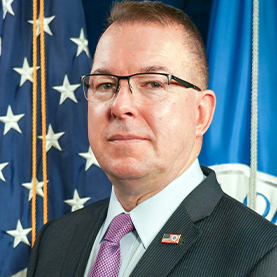
Pete Gaynor
Former Administrator
Federal Emergency Management Agency
Pete Gaynor led FEMA’s response to more than 300 presidentially declared emergencies and major disasters. In 2020, he oversaw the agency’s first-ever operational response to a nationwide pandemic while serving as a key member of the White House Coronavirus Task Force. This included managing the deployment of more than 5,300 staff and $57 billion from the Disaster Relief Fund. At the same time, the agency responded to the most active Atlantic hurricane season ever, with 30 named storms, and a historically severe West Coast wildfire season. Prior to FEMA, he led emergency response agencies for the state of Rhode Island and the city of Providence. Before his experience as an emergency manager, he served for 26 years as an enlisted Marine and Infantry Officer in the U.S. Marine Corps.
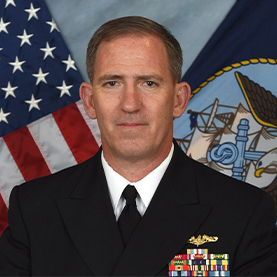
Rear Admiral John Polowczyk (ret)
Former White House COVID-19
Supply Chain Task Force Lead
Managing Director, EY
Rear Admiral John Polowczyk served as the White House supply chain lead on the Coronavirus Task Force to help the United States meet medical supply demand at the height of the COVID-19 pandemic. In this role, he embedded within the U.S. Department of Health and Human Services to rapidly increase the supply and speed of delivery of medical items for frontline health care workers. Prior to that, he served as Director, Logistics Programs and Business Operations in the Office of the Chief of Naval Operations. He received numerous awards and medals throughout his more than 30 years with the U.S. Navy. He retired in 2020, and is currently a Managing Director at EY.
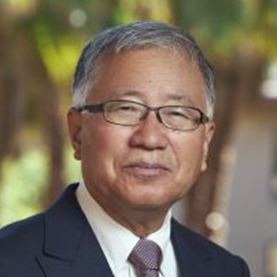
Seungjin "Jin" Whang, PhD
Professor Emeritus, Operations, Information, and Technology
Stanford Graduate School of Business
Seungjin “Jin” Whang is the Jagdeep and Roshni Singh Professor of Operations, Information and Technology, Emeritus, Stanford Graduate School of Business. He obtained a Bachelor of Engineering at Seoul National University, Korea (1974) and a Master of Arts (1983), Master of Science (1985), and PhD (1988), at the University of Rochester. He has been on the faculty of the Stanford Business School since 1987. His research interests include supply chain management and the economics of information technology. He has published widely in academic journals including Management Science, Operations Research, and Information Systems Research. In 2005 his paper, “Information Distortion in a Supply Chain: The Bullwhip Effect,” coauthored with H. Lee and P. Padmanabhan (1997), was elected to be one of the “top ten most influential” papers in Management Science in its 50 years of publications history.
BREAK
12:05 – 12:20 PM
PANEL: COMBATING THE INFODEMIC
12:20 – 1:05 PM
As vaccination rates stalled over the summer, the U.S. surgeon general called for a war against health misinformation, calling it an “urgent threat” to our nation’s security. Fake news and conspiracy theories have run rampant since the pandemic’s beginning, and in the later stages they’ve turned a sizeable number of Americans against vaccination. Where do we go from here in countering misinformation? How can we break through to online communities where falsehoods gain traction?
Moderator

Bonnie Maldonado, MD
Senior Associate Dean, Faculty Development and Diversity, Professor of Global Health and Infectious Diseases, Professor of Pediatrics (Infectious Diseases) and of Epidemiology and Population Health
Stanford Medicine
Yvonne (Bonnie) Maldonado is Professor and Chief of the Division of Infectious Diseases, Department of Pediatrics and the Senior Associate Dean for Faculty Development and Diversity at the Stanford School of Medicine. Since the onset of the COVID-19 pandemic she has conducted more than 10 clinical, epidemiology and laboratory-based studies and is involved in epidemiologic modeling at the university, state, and national levels. She is the Chair of the American Academy of Pediatrics Committee on Infectious Diseases, a member of the Infectious Diseases Society of America, the Society for Pediatric Research, the Pediatric Infectious Diseases Society, the Society for Healthcare Epidemiology of America, and the American Public Health Association. She is a member of the Board of the Pediatric Infectious Diseases Society, a liaison to the United States Public Health Service (USPHS) Advisory Committee on Immunization Practices (ACIP) and was previously a member of the Board of Scientific Counselors for the Office of Infectious Diseases at the Centers for Disease Control and Prevention.
Panelists
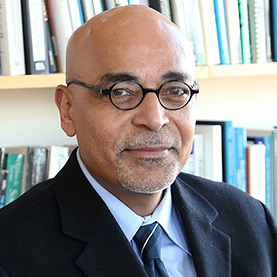
Kasisomayajula “Vish” Viswanath, PhD
Professor of Health Communication
Harvard T. H. Chan School of Public Health
Dr. K. “Vish” Viswanath is Lee Kum Kee Professor of Health Communication in the Department of Social and Behavioral Sciences at the Harvard T. H. Chan School of Public Health (HSPH) and in the McGraw-Patterson Center for Population Sciences at the Dana-Farber Cancer Institute (DFCI). He is also the Faculty Director of the Health Communication Core of the Dana-Farber/Harvard Cancer Center (DF/HCC), among many other leadership positions. He has published more than 250 journal articles, focusing his research on documenting the relationship between communication inequalities, poverty and health disparities, and knowledge translation to address health disparities. He has served and continues to serve on several national committees including for the US Department of Health and Human Services, the Centers for Disease Control and Prevention and the National Academy of Sciences and the National Academy of Medicine.
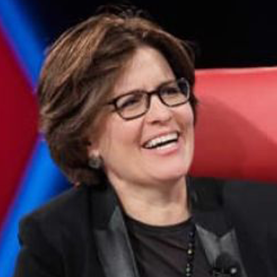
Kara Swisher
Host of “Sway” Podcast and Opinion Writer
The New York Times
Kara Swisher is the host of “Sway,” a twice-weekly interview podcast about power by New York Times Opinion. She has been a contributing Opinion Writer since 2018. Over her career, she has hosted hundreds of news-making interviews, going head-to-head with prominent figures including Elon Musk, Mark Zuckerberg, Rupert Murdoch, Stacey Abrams, Kim Kardashian and President Barack Obama. Her early and no-holds-barred coverage of the technology industry earned her a reputation as “Silicon Valley’s most feared and well-liked journalist.” Earlier in her career she worked at the San Francisco bureau of The Wall Street Journal in the 1990s as one of the first reporters on the Internet beat and eventually began her popular “Boom Town” column. With her longtime collaborator Walt Mossberg, she was a co-producer of the technology conference “D: All Things Digital,” where they interviewed major tech figures including Steve Jobs and Bill Gates. The duo later founded Recode, which was sold to Vox in 2015. She holds a graduate degree from Columbia University’s School of Journalism.

Brian Murphy, PhD
Vice President for Strategic Operations
Logically.AI
Brian Murphy is the Vice President of Strategic Operations at Logically.AI. In this role, he works with US government agencies, companies, civil society groups, academia, and NGOs to help combat misinformation and disinformation at scale. Having spent twenty-six years in federal service, he has dedicated his career to fighting local, national, and international threats to US security, including violent extremism and influence operations. This includes setting up the first counter-disinformation program at the Department of Homeland Security (DHS), which for the first time brought actionable intelligence to election officials, local governments, the business community and policy makers. He was the Acting Under Secretary at DHS from 2018 to 2021 and previously held several leadership positions at the Federal Bureau of Investigation.
PANEL: THE PUBLIC HEALTH PROBLEM
1:05 – 1:50 PM
As the saying goes, an ounce of prevention is worth a pound of cure. We are learning that lesson today. By some estimates, COVID-19 could cost the U.S. economy $16 trillion. It is a staggering figure that underscores the consequences of allowing our public health system to atrophy and go underfunded for decades. How do we break this cycle? Where do we need to invest to build a 21st century public health system capable of preventing the next pandemic?
Moderator

Doug Owens, MD, MS
Professor and Chair
Department of Health Policy
Stanford Medicine
Douglas K. Owens is the Henry J. Kaiser, Jr. Professor, Chair of the Department of Health Policy in the Stanford University School of Medicine and Director of the Center for Health Policy (CHP) in the Freeman Spogli Institute for International Studies (FSI). He is a general internist, a Professor of Management Science and Engineering at Stanford, and a Senior Fellow at the FSI. His research focuses on the application of decision theory to clinical and health policy problems, modeling substance use and infectious diseases, assessing the value of health care services, and other areas. He was Chair of the Clinical Guidelines Committee of the American College of Physicians as well as the U.S. Preventive Services Task Force. He served as the Vice-Chair and Chair of the USPSTF. Previously, he directed the Stanford-UCSF Evidence-based Practice Center, the VA Physician Fellowship in Health Services Research, and the VA Postdoctoral Informatics Fellowship Program. Currently, he co-directs the Stanford Health Services Research Program. He has received the VA Undersecretary’s Award for Outstanding Achievement in Health Services Research and the Eisenberg Award for Leadership in Medical Decision Making. He holds a BS and MS from Stanford as well as an MD from UCSF.
Panelists
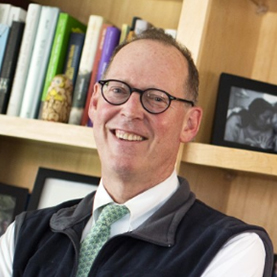
Paul Farmer, MD, PhD
Chair, Department of Global Health and Social Medicine
Harvard Medical School
Medical anthropologist and physician Paul Farmer has dedicated his life to improving health care for the world’s poorest people. He holds an MD and PhD from Harvard University, where he is the Kolokotrones University Professor and the Chair of the Department of Global Health and Social Medicine at Harvard Medical School. He is co-founder and chief strategist of Partners In Health (PIH), an international non-profit organization that since 1987 has provided direct health care services and undertaken research and advocacy activities on behalf of those who are sick and living in poverty. He is professor of medicine and chief of the Division of Global Health Equity at Brigham and Women’s Hospital. He is the recipient of numerous honors, including the Bronislaw Malinowski Award and the Margaret Mead Award from the Society for Applied Anthropology, the Outstanding International Physician (Nathan Davis) Award from the American Medical Association, a John D. and Catherine T. MacArthur Foundation Fellowship, and, with his PIH colleagues, the Hilton Humanitarian Prize. He is a member of the Institute of Medicine of the National Academy of Sciences and of the American Academy of Arts and Sciences.
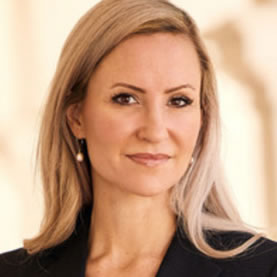
Charity Dean, MD, MPH&TM
CEO and Co-founder
Public Health Company
Dr. Charity Dean is the CEO, co-founder, and Chairman of Public Health Company (PHC). Prior to founding PHC, Charity served as the Assistant Director for the California Department of Public Health and was a key member of the executive team directing the COVID-19 outbreak response from the high-level overview to tactical operations to co-founding and leading the Testing Task Force. In 2019, she served as Acting State Public Health Officer, leading the department’s response to complex outbreaks and bioterrorism alerts. From 2011 to 2018, she served as the Public Health Officer for Santa Barbara County and oversaw a myriad of disease outbreaks; she also served as attending physician for TB, HIV and homeless medicine at the Santa Barbara Health Care Centers. She was awarded Physician of the Year in 2018 by the Central Coast Medical Association and honored as one of the Women of the Year by the California State Legislature. She holds a Bachelor of Science in Microbiology from Oregon State University and a Doctor of Medicine and Master of Public Health and Tropical Medicine from Tulane University.
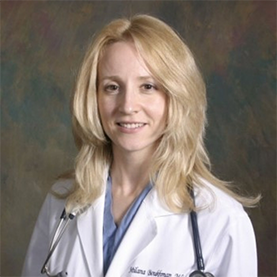
Milana Boukhman Trounce, MD
Clinical Professor, Emergency Medicine
Stanford Medicine
Dr. Milana Boukhman Trounce graduated from the University of California San Francisco (UCSF) School of Medicine and went on to complete her emergency medicine residency and fellowship in Disaster Medicine and Bioterrorism Response at Harvard Medical School. She worked with the Center for Integration of Medicine and Technology (CIMT), a consortium of Harvard teaching hospitals and MIT, where she led BioSecurity related projects in conjunction with the US State Department. She also received her MBA from Stanford Graduate School of Business. After Harvard she joined UCSF as an Assistant Professor of Emergency Medicine and was Medical Director for Disaster Response. For the past 11 years, she has been at Stanford Medical School, where she is a Clinical Professor of Emergency Medicine. She directs the BioSecurity program at Stanford, focused on protecting society from pandemics and other threats posed by infectious organisms, with a specific emphasis on approaches to interrupting transmission of infectious organisms in various settings. At Stanford, over the past ten years she has established and directed a class on BioSecurity and Pandemic Resilience, which examines ways of building global societal resilience to pandemics and other biothreats and has educated over a thousand students. She has also taught an online Harvard course on medical response to biological terrorism, educating thousands of physicians globally. She has served as a spokeswoman for the American College of Emergency Physicians (ACEP) and is a founding Chair of BioSecurity at ACEP.

Mandy Cohen, MD, MPH
Secretary
North Carolina Department of Health and Human Services
Dr. Mandy Cohen was appointed to the role of Secretary of the North Carolina Department of Health and Human Services (DHHS) in January 2017 by Governor Roy Cooper. Secretary Cohen and her team work tirelessly to improve the health, safety and well-being of all North Carolinians. Her team at NC DHHS oversees the operational response – including hospital surge capacity, testing capacity, tracing capacity, and PPE availability – in addition to constructing the advanced data infrastructure necessary to collect and analyze key data points to drive decision making. She also leads the development of North Carolina policy guidance which informs the actions needed to slow COVID-19 spread. She is an internal medicine physician and has experience leading complex health organizations. Before coming to the North Carolina Department of Health and Human Services, she was the Chief Operating Officer and Chief of Staff at the Centers for Medicare and Medicaid Services (CMS). A graduate of Cornell University, she received her medical degree from Yale School of Medicine and a Master’s in Public Health from the Harvard School of Public Health. She trained in Internal Medicine at Massachusetts General Hospital.
CLOSING REMARKS FROM THE DEANS
1:50 – 1:55 PM